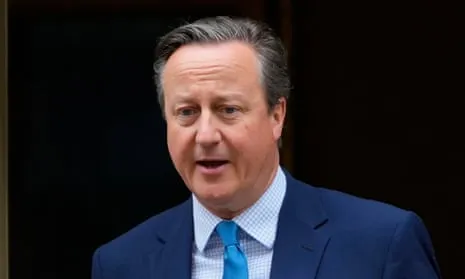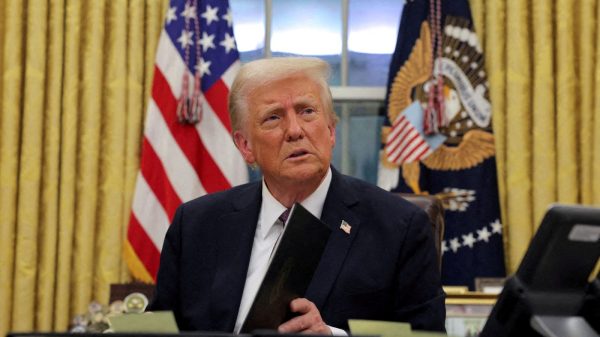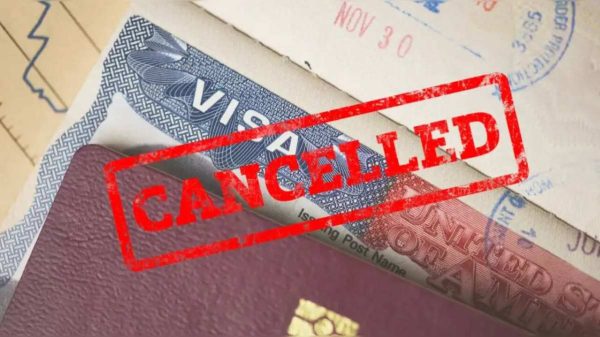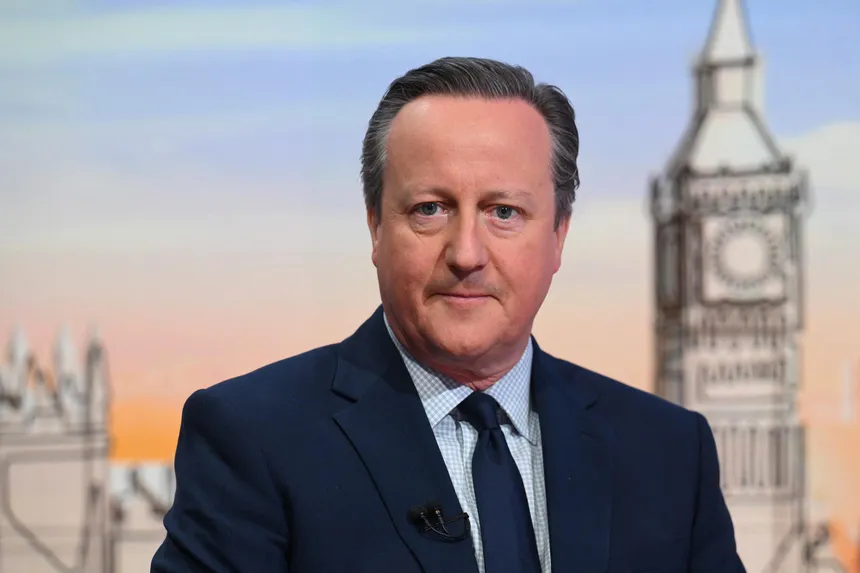In a show of unity and camaraderie, dozens of Conservative MPs gathered to welcome David Cameron back into the British parliamentary fold as the new UK foreign secretary addressed the 1922 Committee, a behind-closed-doors gathering of backbench Conservative MPs. Cameron, who took his seat in the House of Lords on Monday, likened the experience to “going back to school” as he prepared to address the committee. The atmosphere was lively, with senior parliamentarians and serving ministers in attendance, many of whom seemed to be in high spirits over Cameron’s return to the frontbench.
According to sources, Cameron was questioned about his views on the European Convention on Human Rights, as well as UK Prime Minister Rishi Sunak’s efforts to revive the Rwanda asylum seeker policy, which suffered a setback last week with a Supreme Court defeat. Despite the weighty issues at hand, the meeting was marked by a sense of optimism and good humor, with MPs frequently banging their desks in approval. Several senior figures from Cameron’s era were also in attendance, including Theresa May, his successor in Downing Street, Andrew Mitchell, the current development minister, and Dame Maria Miller, a former culture minister.
Cameron, widely regarded as a “class act” and “vintage” by his colleagues, commanded respect and admiration throughout the meeting. His return to the frontbench has been seen as a sign of unity and stability for the Conservative Party, which has faced significant challenges in recent years. The party’s handling of Brexit, party infighting, and internal row over partygate have all taken their toll on the party’s reputation and popularity, and some had wondered whether Cameron’s return would signal a return to the party’s more divisive and polarizing politics of the past.

David Cameron (Via David Cameron/Twitter)
However, Cameron’s comments and demeanor during the meeting suggest that he is focused on maintaining a more consensual approach, one that prioritizes stability and cooperation over conflict and division. “I’ve always believed that good government is about bringing people together, rather than driving them apart,” he told the committee. “I’m proud to be a part of a party that is committed to working together to get things done.” Cameron’s commitment to bipartisan cooperation has been welcomed by many in the party, who see it as a clear departure from the more divisive politics of recent years.
The presence of senior figures from Cameron’s era at the meeting further underscores the sense of nostalgia and familiarity that surrounds his return to the frontbench. Many of these former ministers have remained close to Cameron and have spoken publicly about their admiration for his leadership style and commitment to public service. For them, Cameron’s return represents a chance to recapture some of the magic of his premiership, when the party was united and effective in government.
As the meeting came to a close, Cameron’s colleagues were left feeling optimistic about his return and the prospects for the party. “David Cameron is a fantastic leader and a fantastic person,” said one MP. “His return to the frontbench is a huge boost for the party and I’m delighted to see him back where he belongs.” With Cameron’s return, the Conservative Party is hoping to reassert its authority and regain the trust of the British people. Whether he can succeed in this mission remains to be seen, but one thing is clear: his presence in the foreign secretary role is already having a profound impact on the party and the government.











































